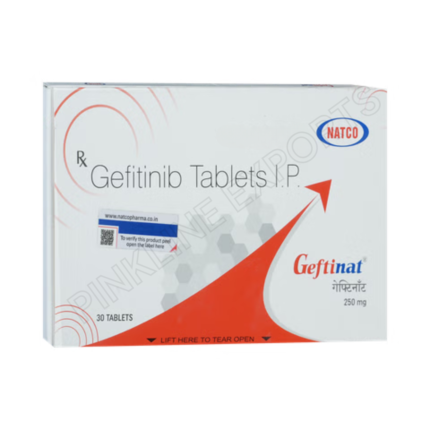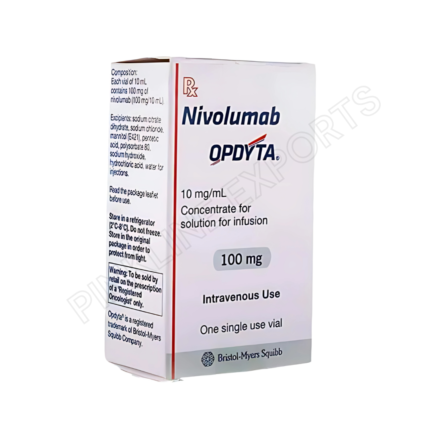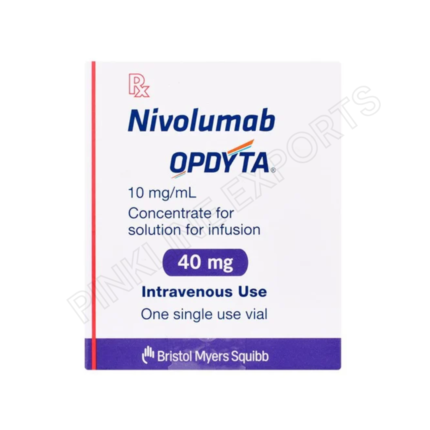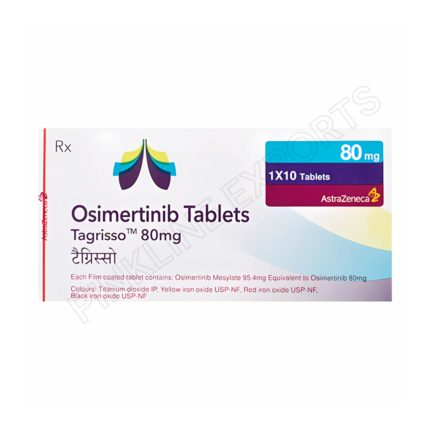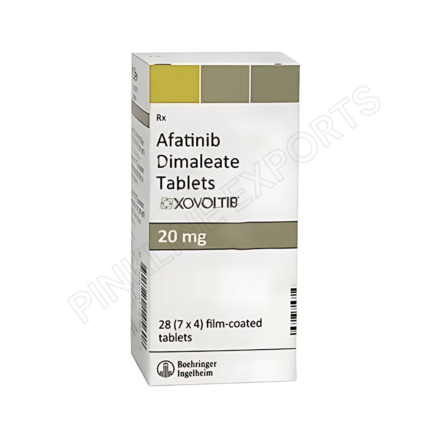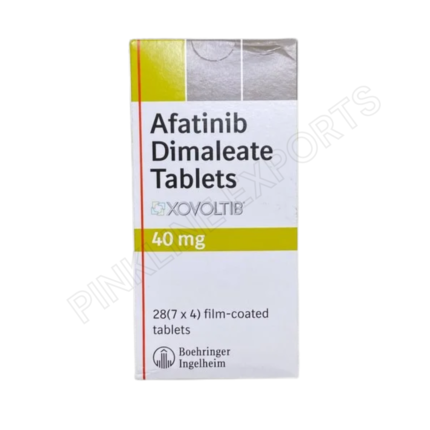Showing 1–12 of 13 results
Afatinib Tablets 20 Mg – Generic Gilotrif
Afatinib Tablets 30 Mg – Generic Gilotrif
Afatinib Tablets 40 Mg – Generic Gilotrif
Erlotinib Tablets 100 Mg – Generic Tarceva
Erlotinib Tablets 150 Mg – Generic Tarceva
Gefitinib Tablets 250 Mg – Generic Iressa
Opdyta 100 Mg
Opdyta 40 Mg
Xovoltib 20 Mg
Xovoltib 30 Mg
Xovoltib 40 Mg
The fight against lung cancer has been changing rapidly, and lung cancer remains one of the most daunting diseases of our era. This page is the key to a new level of insight—how to recognize the warning signs, how to unravel the process of proper diagnosis, and how to discover the breakthroughs that are redefining what can be done in treatment.
Hope now comes with accuracy. This space unites the most revolutionary choices that redefine the way lung cancer is approached and how it is conquered, with breakthrough drugs that are specific to the stage of the illness and potent lung cancer treatment that teach the body to fight back. As a global supplier of oncology pharmaceuticals, Pinkline Exports is very important since it makes sure that patients and healthcare practitioners in all markets can get high-quality lung cancer drugs quickly.
What is lung cancer?
Lung cancer is a kind of cancer that starts in the tissues of the lungs, usually in the cells that line the airways. It happens when cells that aren't normal grow out of control, forming tumors that can make it hard to breathe and spread to other regions of the body.
Small-cell lung cancer (SCLC) and non-small-cell lung cancer (NSCLC) are the two main kinds of lung cancer. SCLC is less prevalent but more aggressive; it spreads quickly and mostly affects smokers. There are other forms of NSCLC, including adenocarcinoma, squamous cell carcinoma, and large cell carcinoma. It is more common and develops more slowly.
Lung cancer is one of the most common and deadliest types of cancer in the world.
Causes and Risk Factors
There are many things that can lead to lung cancer, and many of them can be avoided or treated by learning more and adopting healthier lifestyle choices.
- Smoking: People who smoke tobacco are more likely to get lung cancer because they breathe in chemicals that help cancer grow and hurt lung cells over time. About 80–90% of lung cancer deaths are due to smoking. The risk goes up a lot whether you smoke or not.
- Air Pollution: Long-term exposure to polluted air, especially fine particulate matter, can increase the risk of lung cancer, especially in cities and industrial regions.
- Genetic Factors: Problems with genes may alter the manner in which cancer develops in a non-smoking individual, and therefore, if a family member has had lung cancer, you are at a higher risk of developing it as well.
- Occupational Exposure: Being in an environment where you are exposed to hazardous substances such as asbestos, radon gas, and diesel fumes may increase your risk of lung cancer.
Lung Cancer Treatment Options
Depending on the kind and stage of the disease, lung cancer treatment varies.
- Chemotherapy: Utilizes strong drugs to destroy cancer cells or stop them from growing.
- Radiation therapy: Uses high-energy radiation to find and kill cancer cells.
- Targeted Therapy: Stops cancer cells from growing by focusing on certain genetic changes in them.
- Immunotherapy: Helps the body's immune system find and fight cancer cells.
- Surgery: When cancer is limited, surgery takes out tumors or damaged lung tissue.
The kind and stage of cancer (SCLC or NSCLC), as well as the patient's general health and genetic profile, determine which drugs and treatments are best for them. Personalized treatment regimens lead to greater results and fewer adverse effects.
Pinkline Exports is an important part of cancer care throughout the world since it sends FDA-approved and internationally known lung cancer drugs like:
- Gefitinib Tablets 250 mg: EGFR mutations in NSCLC are targeted, cancer cell growth signals are blocked, and Iressa is taken orally once daily under monitoring.
- Erlotinib Tablets 150 mg: Stops EGFR from acting and treats NSCLC and pancreatic cancer. Tarceva is taken by mouth and needs to be taken on an empty stomach. Users should also see their doctor regularly.
- Afatinib Tablets 30 mg (Generic Gilotrif): Gilotrif is a less expensive generic form of Gilotrif for NSCLC with EGFR mutations and permanently blocks signals that cause cancer.
- Xovoltib Tablets 30 mg: An NSCLC treatment based on afatinib stops proteins that help tumors grow, and Afatinib dimaleate works on advanced cancer kinds that have EGFR.
Common Lung Cancer Drugs
- Osimertinib: Works on EGFR mutations in non-small-cell lung cancer (NSCLC).
- Erlotinib: Stops the development of cancer cells by blocking tyrosine kinases.
- Crizotinib: Used to treat lung cancer that is ALK-positive.
- Pembrolizumab: An immunotherapy medication that helps the body fight cancer.
- Cisplatin: A chemotherapy medication that destroys cancer cells that are dividing quickly.
There are several types of drugs, such as:
- Targeted treatment drugs: Made to work on certain genetic changes in cancer cells.
- Immunotherapy drugs: Help the immune system find and attack cancer.
- Chemotherapy drugs: Kill cancer cells that are developing quickly all over the body.
To ensure safety, efficacy, and the right lung cancer treatment of side effects, it is essential that all lung cancer drugs be taken under medical supervision, with prescriptions and doses prepared by healthcare specialists.
Natural Remedies and Supportive Care
Natural remedies can't take the place of established medical treatments for lung cancer, but they could aid with symptoms and make life better when taken with prescription treatments.
Breathing exercises to help with shortness of breath, dietary adjustments to promote immunity, and natural things like green tea and turmeric, which some studies have indicated may have anti-inflammatory effects, are also helpful possibilities.
Before adopting any natural cure, you should talk to your doctor first. Some of them may make cancer treatments less effective or create unpleasant side effects.
When to Consult an Expert or Oncologist
A cough that won't go away, chest pain, shortness of breath, exhaustion, and weight loss that can't be explained are all early signs of lung cancer. Don't overlook these warning flags.
An effective therapy depends on an early diagnosis. People who are more likely to get sick, including smokers or people with a family history, should get frequent tests and exams.
Patients shouldn't only use information they find online or treat themselves. A trained oncologist can provide you with an accurate diagnosis, a treatment plan that works for you, and continued care for improved results.
FAQs
What are the first warning signs of lung cancer?
A cough that won't go away, chest pain, trouble breathing, tiredness, and weight loss that isn't explained.
Can lung cancer be cured completely?
Sometimes, good treatment can cure lung cancer in its early stages.
What are the most common treatments for lung cancer?
Common treatments include surgery, chemotherapy, radiation therapy, targeted therapy, and immunotherapy.
What drugs are commonly used in lung cancer treatment?
Common drugs include Osimertinib, Erlotinib, Crizotinib, Pembrolizumab, and Cisplatin.
Is there a natural cure for lung cancer?
There is no natural cure; natural therapies may only help with symptoms.
How long can you live with lung cancer?
Depending on the type of cancer, the stage, and how well the therapy works, survival rates can be very different.

.svg)








